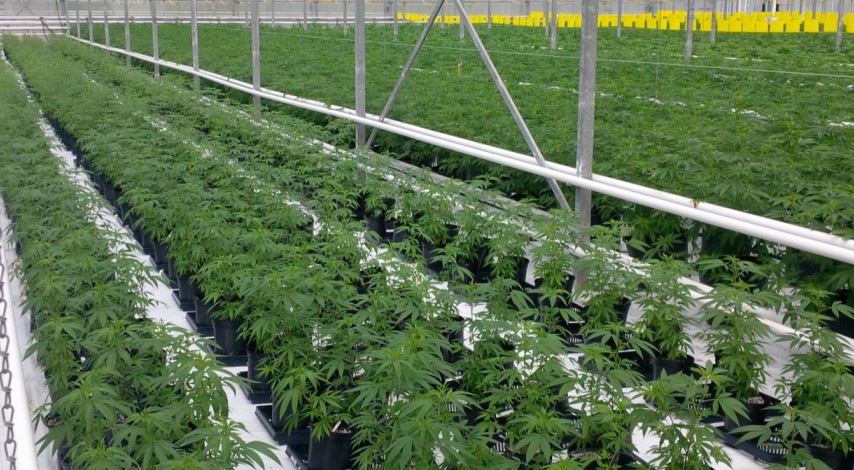Uncategorized
Cannabis Cultivation
Almost one hundred years ago, cannabis was stigmatized. In the past, various cultures had banned the herb, but during the 20th century, anti-cannabis propaganda caused negative sentimentsto intensify. Even now,the herb remains burdened by this reputation; however, things are beginning to change for the better. The professionalization of those who cultivate cannabis is causing people’s perspectives to shift..
Every society has its taboos; engaging in certain activities is associated with reproach. While some behaviors are inherently wrong and deserving of stigma, others are impacted through social engineering. Cannabis is an excellent illustration of the latter case. Humans have cultivated cannabis for thousands of years to cure, nurture, and heal themselves. Despite the fact that prohibition has been imposed numerous times in the past, efforts to demonize cannabis during the 1900s continue to have an impact on how most nations perceive marijuana today.
The reason so much residual stigma surrounded cannabis is outlined below. We’ll illustrate how this stigma mark still affects the industry once we’ve figured out what’s going on. But good things are afoot; positive changes in the cannabis market, particularly relating to cannabis cultivation, are likely to reverse prevalent prejudice and transmute it into respect.

Why Does So Much Stigma Surround Cannabis?
Propaganda is the term for it. There are two ways to perceive reality. The first method of viewing reality is referred to as objectivity. When we use the scientific method and strive to eliminate prejudice, we frequently obtain consistent and reliable findings that portray a solid picture of fact. Ideology is the second approach to viewing reality. We distort reality in favor of our own goals, desires, and intended results when we abandon objectivity and instead look at things through a lens of bias.
What does this have to do with cannabis? Even a brief examination of the history of marijuana in the 20th century will reveal outrageous claims, malevolent personalities, and unethical behavior fueled by prejudice and menace rather than objectivity and truth.
Cannabis was included in the United States Pharmacopoeia from 1850 to 1942. This is long before many cultures used it for medicinal purposes, such as ancient China and Japan, or even the Middle East.
So what went wrong? Why did one of our oldest botanical partners suddenly stop cooperating? Propagandists in the United States who backed cannabis criminalization launched a yellow journalism campaign based on lies and racism. Anti-cannabis sentiments began to brew in the 1930s, climaxing with the release of Reefer Madness in 1936—a film that connected cannabis use to hallucinations, attempted rape, and murder.
The 1937 Marihuana Tax Act was instituted after this fictional hit film to enable the government control and taxation of all cannabis sales. Harry Anslinger, who engineered the legislation, employed deceptive marketing tactics by capitalizing on racist lies and propaganda that painted cannabis users as hellishly violent criminals, targeting black and Hispanic communities.
Merely a few decades ago, militarised language began to enter everyday conversation. President Nixon started the War on Drugs which made cannabis illegal with the Controlled Substances Act of 1970. This placed cannabis in the Schedule 1 category alongside harder drugs such as heroin and cocaine.
The Global Impact of Cannabis Prohibition
Of course, cannabis prohibition was enacted throughout the world. While some attribute it to a brilliantly plotted conspiracy, I believe it is more likely due to something inherent in human nature. Those with a financial or ideological stake in the game have clearly influenced prohibition—but much of the prejudice stems from individuals condemning something they don’t understand.
Different civilizations devised their own explanation without the science to explain the cannabis high. The Hindu Vedas claim that a guardian angel resides in the leaves, while prohibitionists frequently link altered awareness with madness.
Even though people are starting to become more accepting of cannabis, the plant is stillriminalized in most countries. The stigma around it exists even in nations where it’s legal to buy and sell cannabis.
Medical Cannabis Users Also Bear the Brunt
Fortunately, we’ve seen some progress in recent years, with several nations decriminalizing cannabis to various degrees. The waters, on the other hand, are still murky. There are legal gray areas that make things difficult, and residual prejudice prevents medical marijuana users from receiving comprehensive information.
At the federal level, marijuana is a Schedule 1 drug, which means it has no accepted medical uses and is therefore illegal. This inconsistent categorization leaves some employers perplexed, and it puts medical users at risk of losing their jobs or being dismissed before they have had a chance to complete the interview process. In noting veterans with post-traumatic stress disorder (PTSD) and back problems who were passed over for employment due on their honesty about their medical cannabis usage in Pennsylvania, [1] reports stated that disabled vets were missing out on job prospects because they disclosed their condition.
This time, we have a contradiction between sound objectivity and prejudicial bias. Cannabis is categorised as a Schedule 1 drug by the Drug Enforcement Administration (DEA) in the United States because it has a high potential for abuse and no currently accepted medicinal value. Alcohol and cigarettes are also widely accessible, and they easily fulfill the requirements of a Schedule 1 substance.
Even in legal jurisdictions, many years of prohibition have had an impact. But this stigma doesn’t only affect individuals; it has a negative influence on the entire professional cannabis market.

Cannabis Stigma: How It Affects the Professional Market
How exactly does cannabis stigma affect the current market? First and foremost, it prevents it from even existing in many countries—apart from the highly successful black market. Countless nations are slamming the breaks on their own economic growth by keeping cannabis prohibited.
Meanwhile, the state of Colorado shows what happens when legislators break down these walls. Over the last six years, the state collected over $1.6 billion in marijuana taxes and fee revenues. Not only are nations such as the United Kingdom missing out on some serious cash, but they’re inhibiting the creation of thousands of businesses and the acceleration of critical research and development.
But businesses that operate within a legal framework also suffer the consequences of cannabis stigma. PayPal dominates commerce, and currently boasts 403 million active consumer accounts and 29 million merchants. However, PayPal has placed cannabis on its “restricted items list”, which means companies selling anything related to cannabis, including glassware and CBD products, are prohibited.
We’ve experienced our fair share of discrimination at Royal Queen Seeds. Our company gained tens of thousands of five-star reviews of Trustpilot until the consumer review website kicked us to the curb because of the cannabis-orientated nature of our business.
The Professionalisation of Cannabis Cultivation
You’d think cannabis would be on its last legs at this point. Quite the opposite. There are many innovative minds within the marijuana space; in many ways, prohibition forced growers and breeders to come up with ingenious solutions to draconian setbacks.
From Attics to Greenhouses
The professionalisation of cannabis cultivation continues to change the face of the herb. Many people associate cannabis operations with those shown on cop shows and in newspapers. These setups usually manifest as attics lined with tin foil and basements equipped with shoddy lights and extractor fans. People have become so used to this sight that it just screams criminality.
But legalization in some countries has allowed entrepreneurs and innovators to employ the latest horticultural techniques to benefit consumers and the industry as a whole. Large-scale greenhouses equipped with automated irrigation systems and atmospheric control eviscerate the “criminal appearance”, and instead present cannabis as a sensible cash crop worthy of scientific investigation and serious investment.
In truth, the growers and breeders that worked—and continue to work—hard during prohibition set the stage for this progress. They are responsible for many of the prized genetics available today, not to mention the methods of biological control and feeding at our disposal.
The New Age of Cannabis Growing Technology
Now we can see the results of their work. Large-scale cannabis growers use these genetics and methods to increase production. Many successful cannabis companies hire botanists, breeders, and cultivation experts to enhance efficiency, sometimes even incorporating artificial intelligence into their systems.
Large-scale cannabis producers are also paying close attention to the most up-to-date information provided by cannabis researchers. Growers and breeders keep developing cultivars with higher quantities of new chemicals as new findings on cannabinoids, terpenes, and other components are published.
Another sector within the industry, while massive greenhouses and automated systems are impressive, is establishing a personal, organic, and ecologically sustainable niche. Hundreds of professional cannabis cultivators in the United States generate all of the ingredients necessary to construct healthy living soils with little environmental impact.
Not only are professional cannabis growers reaping the benefits of new technology, but home-growers are as well. Rather than using harmful chemicals or intense lighting systems, indoor growers can now use safe LED lights and organic nutrients to see their plants through to a successful harvest!
All of these amazing efforts are slowly but surely replacing cannabis stigma with respect, reverence, and fascination. Even the most sceptical of opponents can’t help but turn their heads when they hear about the economic benefits and incredible investment opportunities.
The Potential of Hemp Farming
Many farmers are making the switch to cultivating cannabis, a move that society tends to look favourably upon. Farming is how we get food to plate up every evening, after all. You’re probably used to seeing fields full of corn, wheat, and barley.
Tall and fibrous cultivars with a low THC content (known as hemp) are a appealing choice for farmers. The seeds are an excellent source of food, the fibers are ideal for making rope, paper, and other products, and the CBD-rich blooms are an important commodity all in all. In 2018, the Farm Bill[2] in the United States legalized broad-scale hemp cultivation, allowing individuals to sell, transport, and possess hemp-derived goods without restriction.
Hemp farming is big business in several European countries. Hemp, on the other hand, evokes passions from all walks of life. The plant also complements environmental efforts and provides a source of optimism to those committed to sustainability. Hemp generates more long-lasting goods than cotton, requires fewer chemicals to produce, and helps to clean the soil via bioremediation by producing cleaner air.
Is Professionalisation in the Cannabis Space Shifting the Paradigm?
Cannabis has had a difficult century, to be sure. However, change is on the horizon. Impressive growing facilities, rigorous research and development, and economic transformation are all altering the face of cannabis, as well as how people and governments view it as a whole. We’ve come a long way in a short time, and the next decade should help us squash any remaining stigma surrounding cannabis.
As a result of advances made by mavericks in the cannabis sector, amateurs may now produce far more high-quality home-grown cannabis than before. As the professional industry continues to expand, the standard and efficiency of residential setups will only increase. We are fortunate!


